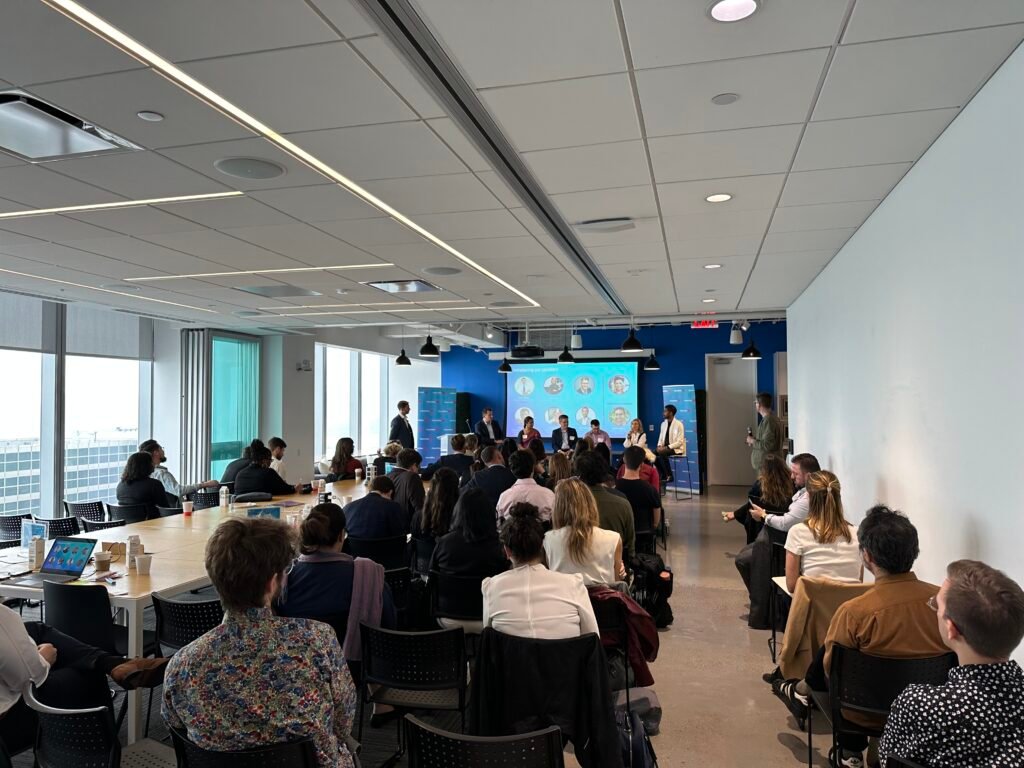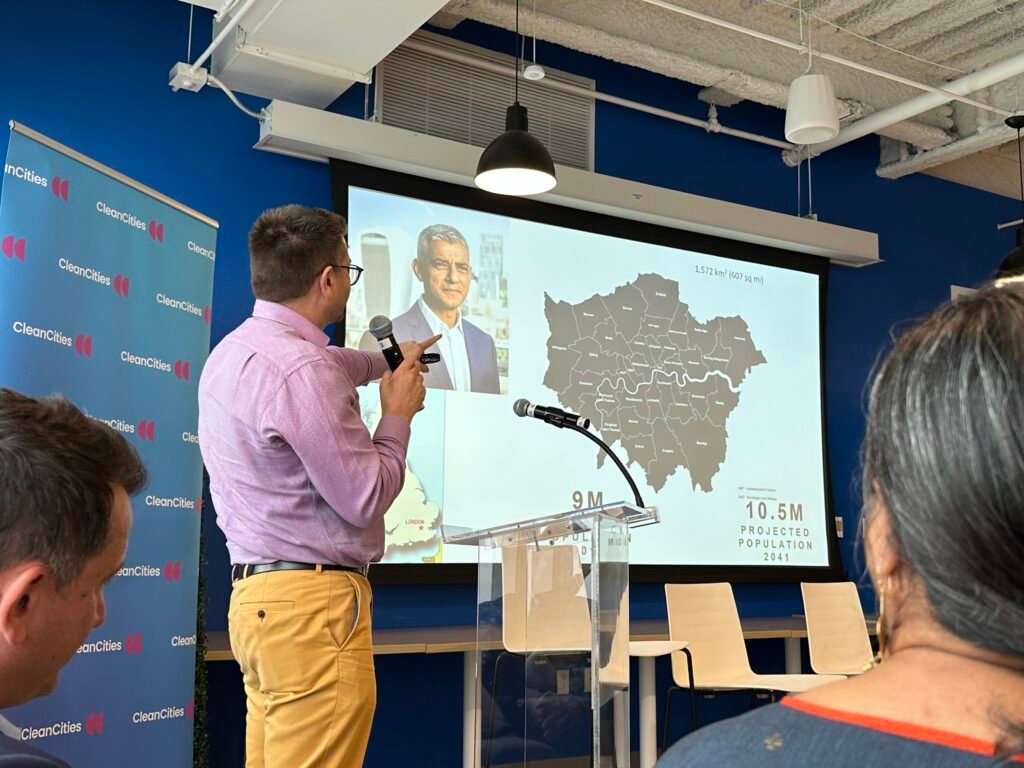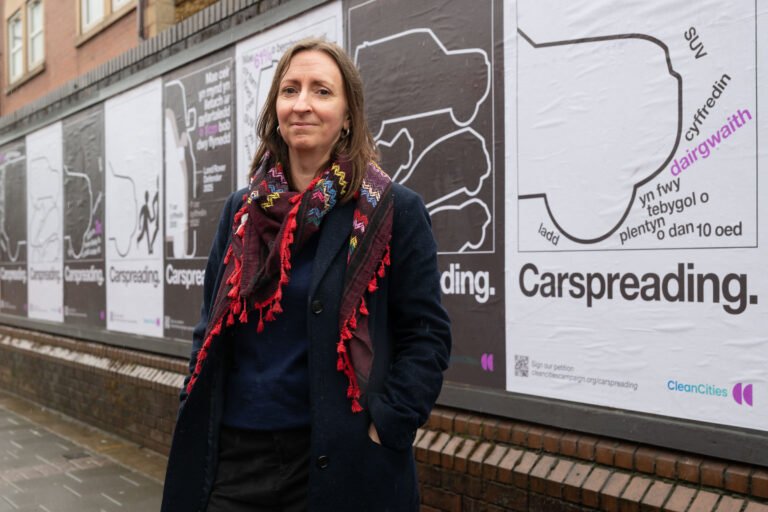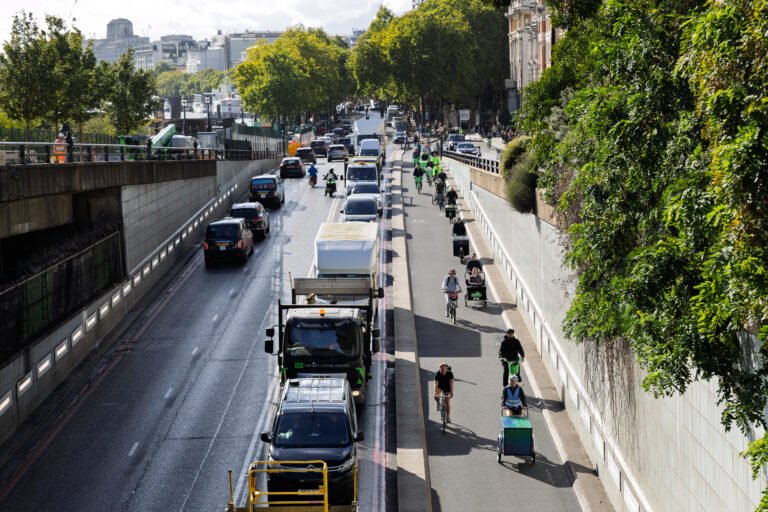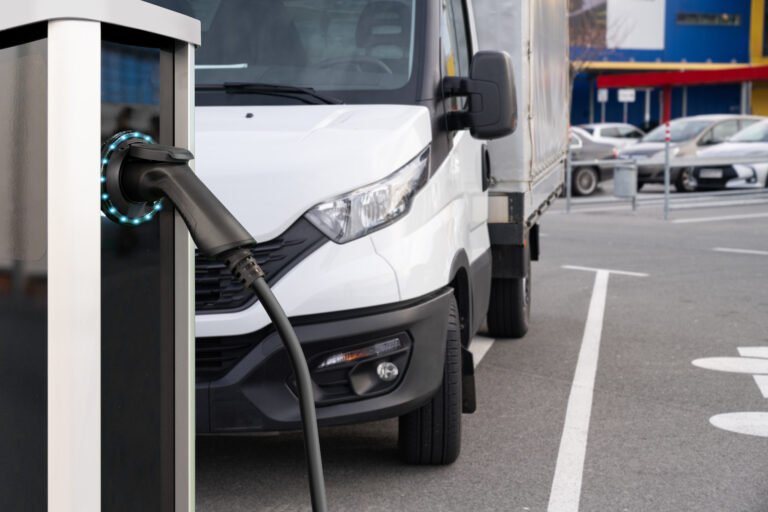
Zero-Emission Pioneers: Shaping the future of urban logistics at Climate Week NYC
We hosted an exciting panel discussion at Climate Week NYC showcasing how cities and businesses are stepping up to decarbonise urban logistics.
Urban logistics play a vital role in European cities, yet polluting vans and trucks make the sector unsustainable. At Climate Week NYC 2024, Clean Cities hosted an exciting panel discussion showcasing how cities and businesses are stepping up to meet this challenge.
We welcomed an inspiring group of speakers, from cities, companies and civil society and marked the launch of our ‘Pioneers of zero-emission urban logistics in European cities’ report. This report highlights the cities and companies leading the way by committing to decarbonise transport, adopting plans for zero-emission zones, and forming alliances for zero-emission urban logistics.
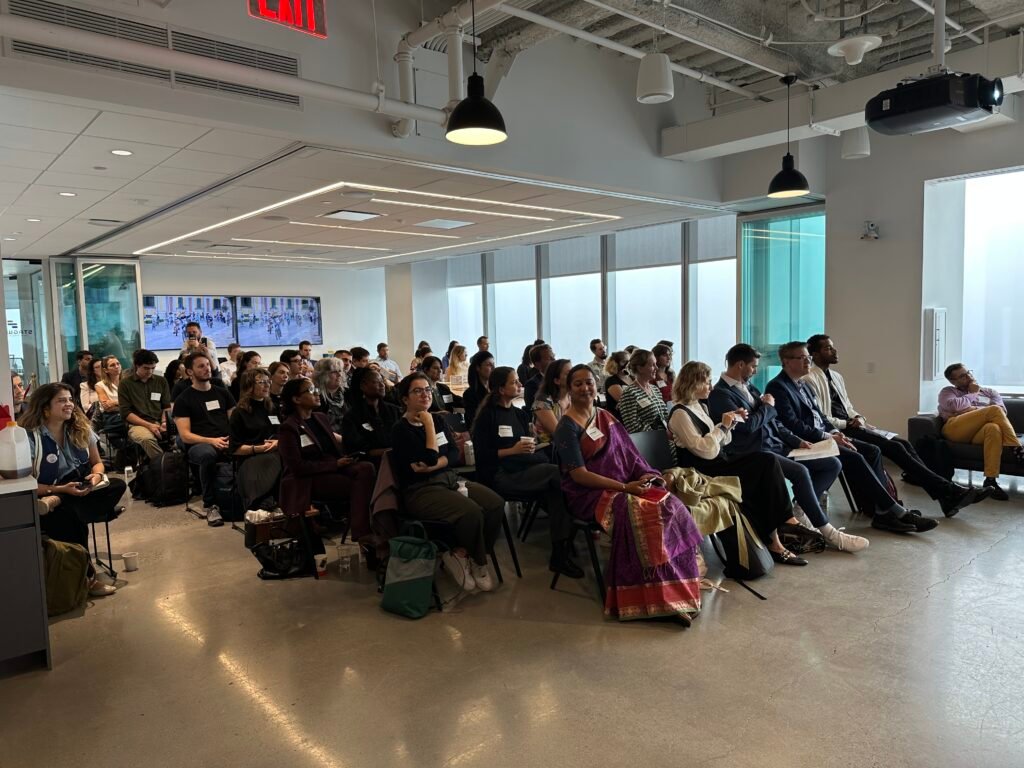
Transport is a major contributor to climate change, accounting for nearly one-fifth of global CO2 emissions. The reality is that 95% of transport energy still comes from fossil fuels, which is simply not sustainable. As Barbara Stoll, Director of the Clean Cities Campaign, pointed out, “If you want to go fast, go alone. If you want to go far, go together.” This mantra set the tone for the afternoon and highlighted the importance of collaboration in achieving our goals.
One of the most inspiring aspects of the event was hearing about the innovative solutions being implemented in cities and companies worldwide. Julia Pallé, Vice President of Sustainability at Formula E, highlighted how motorsport has accelerated electric vehicle technology. “Motorsports is a vehicle – pun intended – to accelerate technologies,” she said, noting how racing provides a unique platform for manufacturers to test and showcase advancements in electric mobility.
Steven Moelk, Fulfilment Project Implementation Manager for Zero Emission Delivery at IKEA, shared insights on integrating electric vehicles into logistics. “The first step is electric vehicle access. We’ve worked on creating rental fleets that drivers can use without needing to make large upfront investments,” he explained. This approach is essential for overcoming financial barriers and facilitating the shift to zero-emission deliveries. He also highlighted the critical role cities play in supporting this transition: “What cities can do to accelerate electrification is implement zero-emission zones.”
And, in London, Elliot Treharne, Assistant Director for Transport at the Greater London Authority, highlighted that “By 2041, we want 80% of trips in London to be taken by walking, cycling or public transport.” Initiatives like London’s Ultra-Low Emission Zone (ULEZ) are already transforming how people navigate the city, encouraging the use of cleaner vehicles.
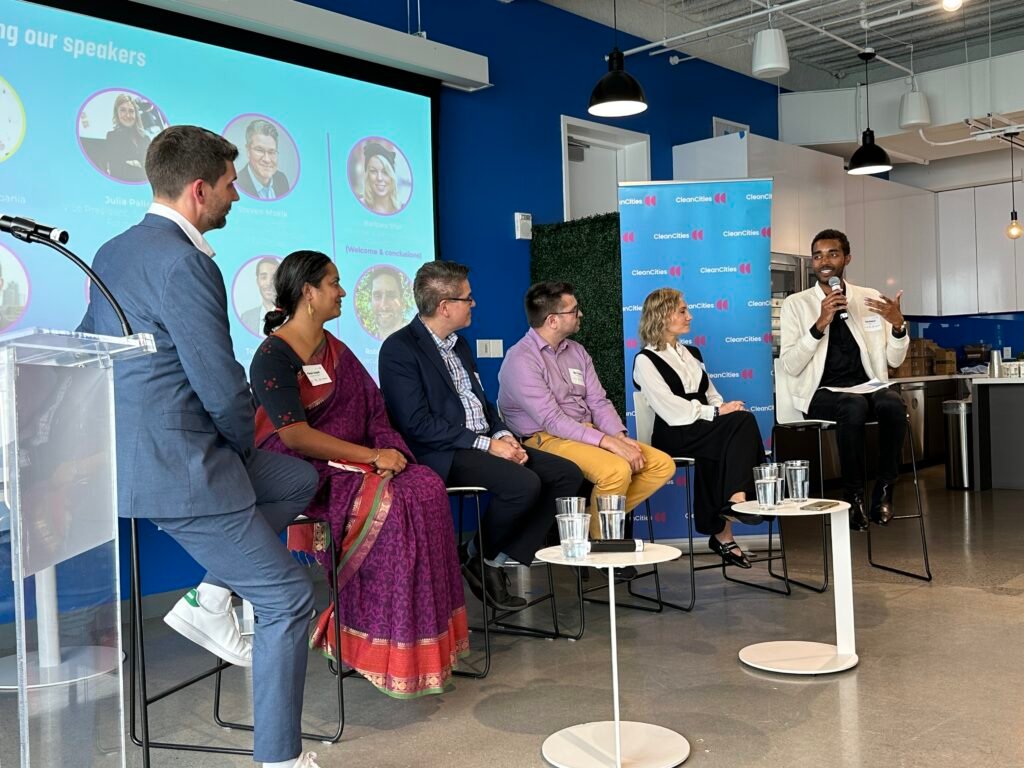
However, the path to zero-emission logistics is not without its challenges. Vinuta Gopal, CEO of Asar Social Impact Advisors, shared the complexities of electrifying last-mile delivery. “Last-mile delivery is crucial, especially in tier-two cities,” she emphasised, pointing to the increasing demand for electric two- and three-wheelers as a solution. This underscores the need for a transition to cleaner transportation that is both inclusive and just.
Tony Renucci, Executive Director of Respire and Local Councillor of Joinville-le-Pont in the Paris Capital Region, stressed the importance of strong leadership to implement zero-emission policies. “Paris was the first low-emission zone in France, and we saw a reduction in pollution and traffic, proving that strong leadership and decisive action can change our cities for the better.”
What’s clear from the discussions is that the solutions are already out there, and many cities and companies are making strides towards a clean transport future. The message is simple: when we collaborate – across sectors, borders and communities – we can create sustainable urban transport systems that benefit everyone.
Erion Veliaj, Mayor of Tirana, Albania, encapsulated this collaborative spirit, “Cities are not parking lots; we build cities for people, not cars.” This vision for inclusive urban planning is essential as cities strive to reclaim public spaces for the community.
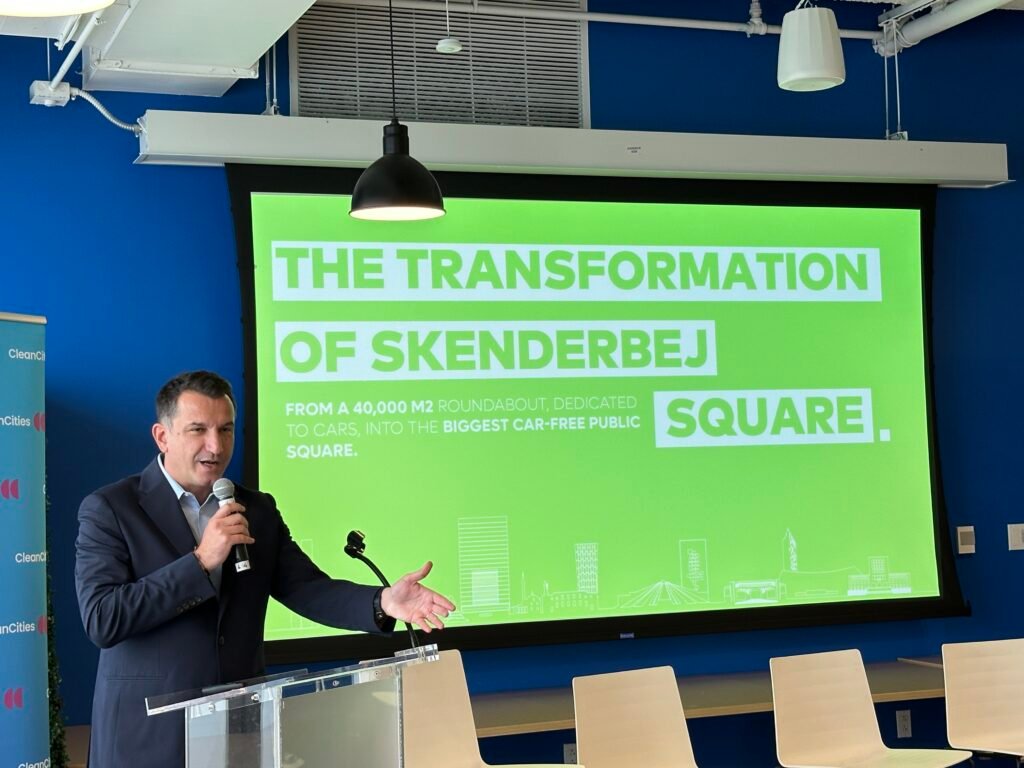
WATCH OUR ZERO-EMISSION PIONEERS VIDEO
Learn more about the innovative strategies and success stories of cities and companies leading the charge toward zero-emission urban logistics in our report: Pioneers of Zero-Emission Urban Logistics in European Cities

